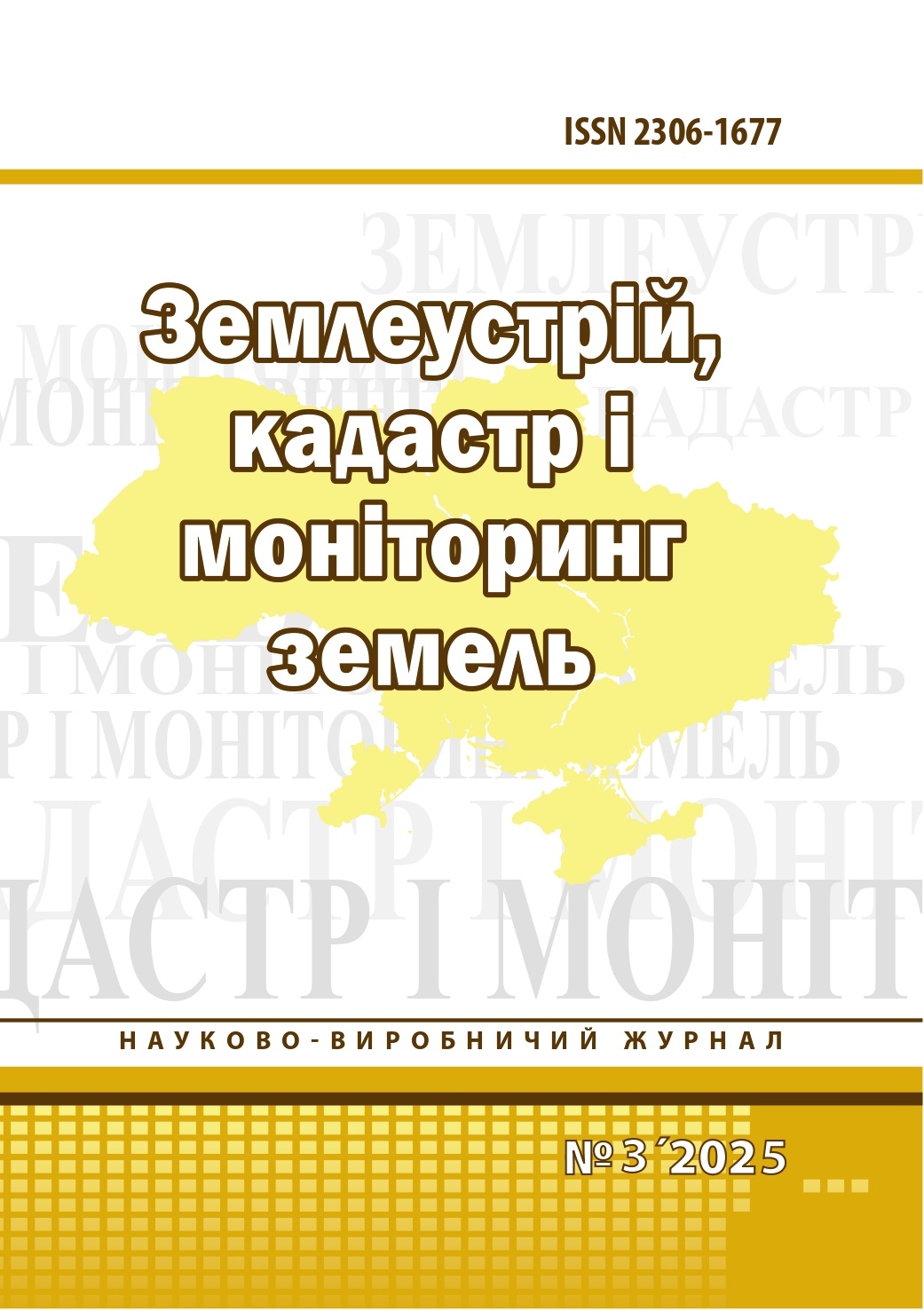Інноваційні засади організації, використання та охорони сільськогосподарських земель
DOI:
https://doi.org/10.31548/zemleustriy2017.04.076Анотація
В статті досліджено інноваційні засади розвитку. Висвітлено роль моніторингу земель в веденні сільськогосподарського землекористування та передумови вдосконалення сільського господарства. Запропоновано концепцію сталого розвитку використання земельних ресурсів. Описано зарубіжний досвід та напрямки зростання сталого землекористування.
Ключові слова: моніторинг земель, інноваційні засади, землекористування, охорона земель.
Посилання
United States Department of Agriculture Foreign Agricultural Service : [Elektronnyi resurs]. – Avaliable at : http://www.pecad.fas.usda.gov/
Beiker D. Chto nuzhno kulturam, poseiannym po tekhnolohyy «NO-TILL», chtob stat vysokorentabelnumy / D. Beiker // Self-recovering tillage on the basis of a systematic approach: collection of reports VII-th Intern. Conf. on soil-protecting agriculture, June 23-27, 2009: abstracts of the doc. Dnepropetrovsk, 2009. - S. 45-48.
Belolipskyi V. A. Kompleksne modeliuvannia otsinky ekolohichnoho stanu ahrolandshaftiv [Complex modeling the environmental condition of agricultural]./ V. A. Belolipskyi, V. O. Hrekov, A. A. Pokotylo // Visnyk ahrarnoi nauky. - 2008. - № 6 — S.51-56.
Bohdanets V. Ia. Osoblyvosti rozroblennia heoportalu kartohrafichnoi informatsii pro zemelni resursy [Features of geoportal development of cartographic information about land resources]s. 98
Butenko E.V., Kharytonenko R.A. Efektyvnist vedennia monitorynhu zemel z vykorystanniam danykh dystantsiinoho zonduvannia [Efficiency of monitoring of land using remote sensing data] s. 39
Butenko E.V Kharytonenko R.A Proiavy dehradatsiinykh protsesiv na zemliakh krainy: prychyny i naslidky [Manifestations of land degradation processes in the country: the causes and consequences] №1-2’2014. S.91.
Dorosh I.M. Zemelna reforma na rehionalnomu rivni (na prykladi Kyivskoi oblasti za 1991-2011 rr.)[Land reform at the regional level (for example, the Kiev region for 1991-2011) / I.M. Dorosh, S.O. Osypchuk, M.P. Stetsiuk, O.S. Dorosh – K. : VIPOL, 2011. – 182 s.
Kontseptualni osnovy upravlinnia innovatsiinym protsesom na zasadakh marketynhu. [Elektronnyi resurs]. – Avaliable at: http://buklib.net/books/37674/
Normy vyrabotky [Elektronnyi resurs]. – Avaliable at: https://studfiles.net/preview/3823699/
Normy vysivu ahrokultur [Elektronnyi resurs]. – Avaliable at: https://yablukom.com.ua/uk/tsikavo-znatu/658-normi-visivu-kultur
Petrychenko V. Monitorynh zemel yak riativnyi kruh [Land monitoring as a rescue circle]/ V. Petrychenko, S. Baliuk, V. Medvediev // Uriadovyi kur’ier. – 2014. – 12 kvitnia. – № 68. – S. 8.
Sokhnych A. Ia., Irtyshcheva I. O Innovatsii v period ekonomichnykh transformatsii [Innovations in the period of economic transformations]
Tretiak A., Kuryltsyv R., Tretiak N. «Kontseptualni zasady rozvytku v Ukraini suchasnoi bahatofunktsionalnoi systemy upravlinnia zemelnymy resursamy» [Conceptual framework for the development of modern multifunctional land management system in Ukraine] Zemlevporiadnyi visnyk №9 2013r., s-28.
Urozhai [Elektronnyi resurs]. – Access mode: http://urozhai.com/?q=uk
Завантаження
Опубліковано
Номер
Розділ
Ліцензія
Стосунки між правовласниками і користувачами регулюються на умовах ліцензії Creative Commons Із Зазначенням Авторства – Некомерційна – Поширення На Тих Самих Умовах 4.0 Міжнародна (CC BY-NC-SA 4.0):https://creativecommons.org/licenses/by-nc-sa/4.0/deed.uk
Автори, які публікуються у цьому журналі, погоджуються з наступними умовами:
- Автори залишають за собою право на авторство своєї роботи та передають журналу право першої публікації цієї роботи на умовах ліцензії Creative Commons Attribution License, котра дозволяє іншим особам вільно розповсюджувати опубліковану роботу з обов'язковим посиланням на авторів оригінальної роботи та першу публікацію роботи у цьому журналі.
- Автори мають право укладати самостійні додаткові угоди щодо неексклюзивного розповсюдження роботи у тому вигляді, в якому вона була опублікована цим журналом (наприклад, розміщувати роботу в електронному сховищі установи або публікувати у складі монографії), за умови збереження посилання на першу публікацію роботи у цьому журналі.
- Політика журналу дозволяє і заохочує розміщення авторами в мережі Інтернет (наприклад, у сховищах установ або на особистих веб-сайтах) рукопису роботи, як до подання цього рукопису до редакції, так і під час його редакційного опрацювання, оскільки це сприяє виникненню продуктивної наукової дискусії та позитивно позначається на оперативності та динаміці цитування опублікованої роботи (див.The Effect of Open Access).


